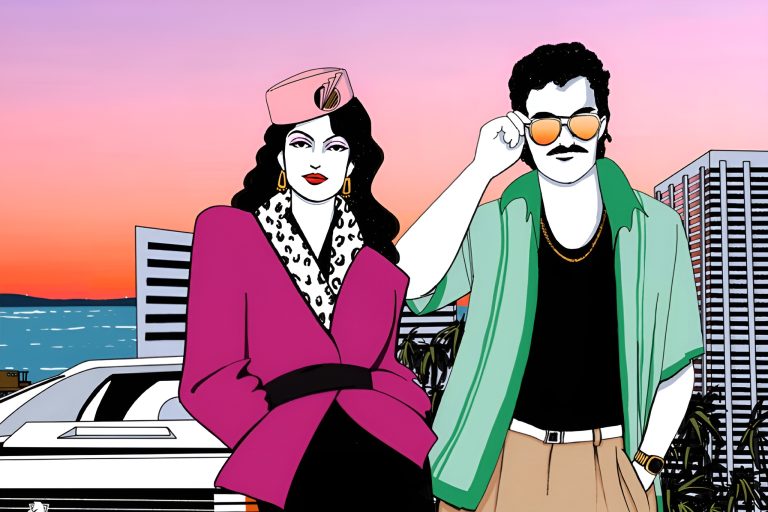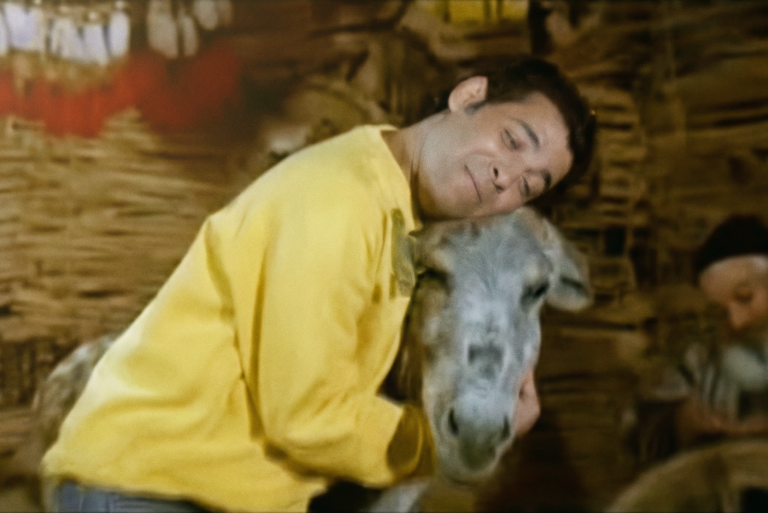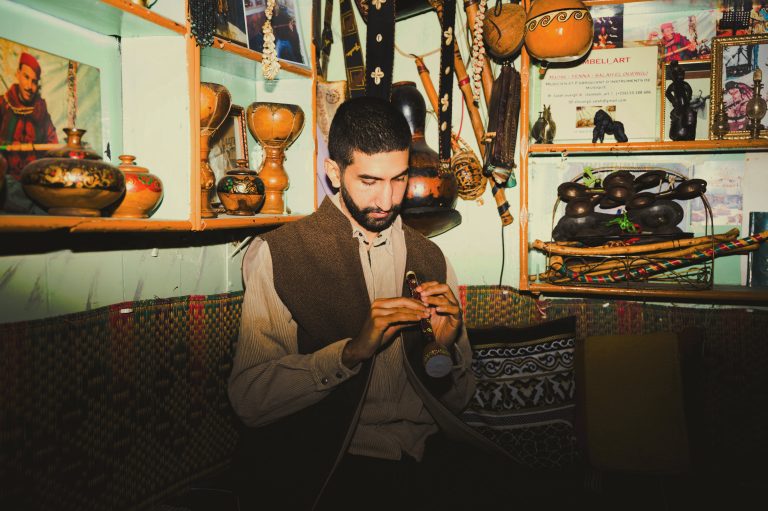If Sinéad O’Connor were around today, watching the children of Gaza, Yemen, and Sudan starve, her outrage would be incandescent. Thirty-one years ago, she revealed the true nature of the Irish ‘famine’ and its ‘painful feelings’, in her unique and fearless voice. An Gorta Mór was a woeful period marked by invasion and conflict – a purposeful program starvation, politically recast as the sole result of crop failure. There is no doubt Sinéad’s howl of outrage would link the bitter legacy of Britain’s starvation of Ireland to the deliberate deprivation being perpetrated in parts of the MENA region. She would rightly be calling it a crime.
Across the MENA region, like Sinéad, musicians have framed the language of resistance. Palestinian group DAM have spoken about their guilt and mourning as activist artists watching the devastation at home. Tunisian singer Emel Mathlouthi, her voice soaring at the Arab Spring, asserted, “I am free and my word is free/ Don’t forget the price of bread … I am the voice of those who do not die,” lyrics that resonate as both witness and indictment. Egyptian band Cairokee, Syrian singer Samih Shqeir, and Lebanese composer Marcel Khalife all fuse grief and protest, arguably turning every refrain into evidence. Through their music, collective memory is sharpened into accusation, particularly on the theme of starvation.
But, when and how can such an accusation become a criminal case?
According to the World Food Programme (WFP), conflict is the primary reason people are living in acute hunger. The WFP explain that hunger drives people away from their land and livelihoods, disrupts markets, increases food prices and destroys critical developmental gains. Palestine, Yemen and Syria are described as “hunger hotspots” where people are suffering devastating impacts.
Research has shown that across all causes and factors, conflict is the dominant feature in famine across time, but it was not until more recently that it became a crime. The Lieber Code (1863) specifically allowed the ‘extreme measure’ of driving the fleeing civilians back into a starving city under siege ‘so as to hasten on the surrender’.
The first instance where ‘deliberate starvation of civilians’ was identified as a war crime was after WWI by the Commission on the Responsibility of the Authors of the War and on Enforcement of Penalties. Although ultimately never implemented, the list of crimes, including starvation, remains one of the earliest attempts at itemising specific war crimes.
Ask about starvation and the siege of Leningrad in WWII is often recalled where there was mass death from hunger, but the siege itself was not unlawful. Starvation remained a military and political tactic, framed as legitimate globally and regionally, well into the twentieth century. Even after the horrors of two world wars, the Geneva Conventions of 1949 did not specifically prohibit starvation. It was the 1977 Additional Protocols to the Geneva Conventions that explicitly prohibited starvation as a method of warfare. Article 54 of Additional Protocol I, concerned the protection of victims of international armed conflicts. It prohibits various acts which deny civilians sustenance. Eleven years later, starvation was added to the Rome Statute of the International Criminal Court as a war crime. Six years ago the same laws were amended to apply to non-international armed conflicts – applicable to regions, including MENA.
It is often said that in World War II more people died of starvation and disease than in active combat but Daphne Yuqing Liu, an expert on the law on starvation, describes this as too sweeping a declaration. She explains the modern approach as follows:
“First, there is a fine difference between the tactical use of starvation and starvation due to an instability. Second, the war crime of starvation as we discuss it today is more than food. ‘Hunger’ for water and medicine also count. The test is whether the item is indispensable to civilian life”
This modern test of what is indispensable is important to account for activities in conflict such as destruction/rendering useless by poisoning or polluting water supplies. In MENA, violent attacks on aid workers (and their convoys) and healthcare providers (and their facilities) may be evidence of a starvation tactic.
The Gaza Humanitarian Foundation which controls food distribution has been described as “an experiment in food control and counterinsurgency for the digital era”. In Syria 5.4 million are at risk of hunger. Famine in Yemen is so ubiquitous it has its own Wikipedia page. In relation to Gaza, UN experts have said :
“Securing access to food, water, medicine and critical services is not a matter of charity – it is a legal duty”
So it is that international law now reflects Sinéad’s moral values: Intentionally using starvation of civilians as a method of warfare can, with the necessary evidence, lead to accusation, arrest, prosecution, conviction and sentence, although the laws do not apply to combatants, which can make understanding a situation opaque. It is a law which needs to be tested and therefore should not sit idly on the Rome Statute books but needs to be enforced to see if it functions. If it is used, there may be an impact in terms of deterrence or crime prevention, however aspirational that may sound.
We do not have to wait for the much-beleaguered International Criminal Court (which by the way only has three courts), because in many cases, international laws can be enforced in those states which can apply what is known as ‘universal jurisdiction’. This means that many states have the ability to put anyone on trial for international crimes, wherever they are committed.
The Global Investigative Journalist Network has reported that in 2025, over 300 million people face acute hunger and that Sudan and South Sudan, Gaza, and Haiti are facing the worst crises. Which of these are conflict related, time and evidence will tell. In addition to the importance of what has become known as ‘activist lawyering’ for moral imperatives , the international legal prohibition on starvation is also a crucial tool for advocacy, evidence-gathering, and the demand for accountability. The recognition of starvation as a war crime (national or regional) transforms it from a military objective to a violation of international norms.
It follows that the fundamental right to food is not a ‘cost’ of conflict but a key basis to identify organised criminal military activity. In this context, law also empowers musicians, activists, and lawyers to frame starvation, as Sinéad did, not as collateral tragedy, but as evidence of a prosecutable crime. If Sinéad O’Connor were here, she may demand that these laws against starvation do more than exist on paper. She may insist they serve the hungry, not through empty promises but through real-world prosecutions and prevention. Anything less, as MENA’s musicians explain, is silence.
Dr Felicity Gerry KC is an international barrister, consultant and media commentator with expertise in complex, contemporary legal issues such as human trafficking, homicide, terrorism and war crimes.















